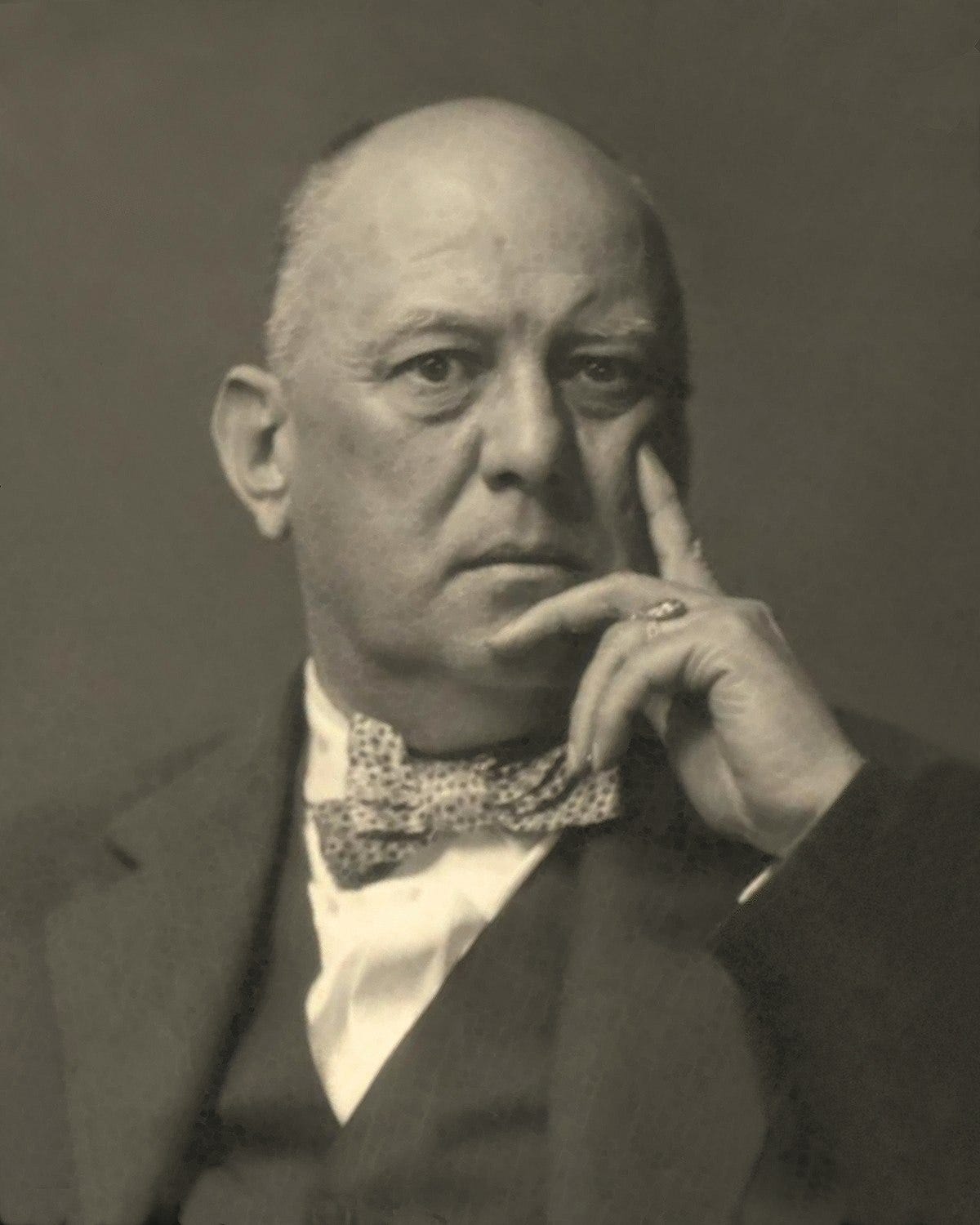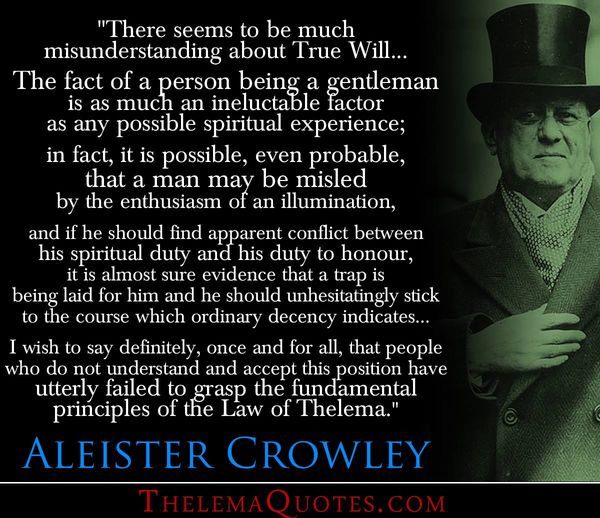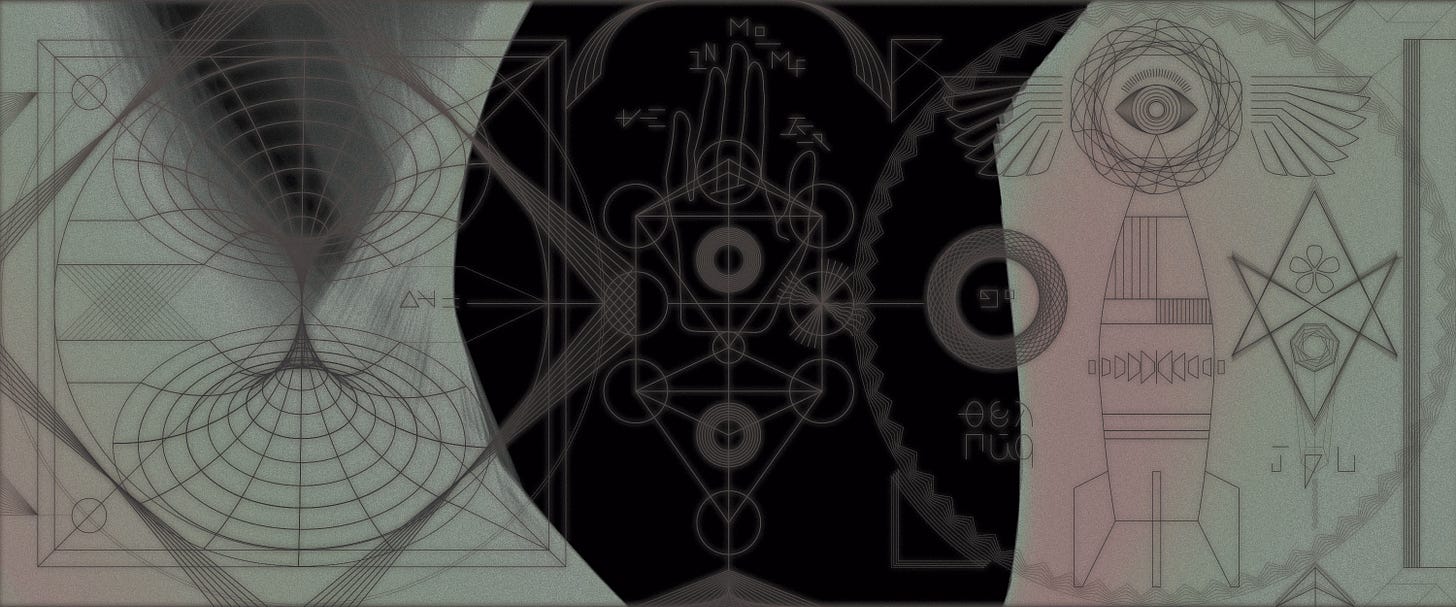"Thelema -True will a life of genuine fulfillment and spiritual alignment"
by: Racine Maurice (Sacred Serpent)
The concept of "True Will" is a fascinating and complex philosophical idea, often associated with the early 20th-century occultist and mystic Aleister Crowley and his religious philosophy known as Thelema. Simplifying this concept involves understanding its roots in esoteric traditions and its application in individual lives as a guiding principle for actions and decisions.
Definition and Origins
At its core, "True Will" refers to the fundamental nature or purpose of an individual's existence—their ultimate calling or spiritual destiny that transcends ordinary goals or desires. It is a concept that asserts every individual has a unique path that aligns with their deepest self and the universe. Crowley summarized the essence of this concept with the phrase "Do what thou wilt shall be the whole of the Law," which often is misunderstood to mean "do whatever you want." However, the true meaning is more about aligning one's actions with their True Will, which is an expression of their authentic self and purpose.
Thelema and True Will
Thelema, which means "will" in Greek, is the spiritual framework Crowley developed to explore these ideas. Within Thelema, the discovery and fulfillment of one's True Will is considered the highest duty of every individual. This does not imply hedonism or self-indulgence, but rather a disciplined pursuit of one's genuine purpose, free from societal constraints and personal limitations.
Crowley believed that every person's True Will is uniquely suited to their nature, and when they act according to this will, they align harmoniously with the universe. This alignment leads to a life of fulfillment and freedom from internal and external conflict.
Understanding True Will
True Will is not about momentary desires or whims. Instead, it is a constant force, a true expression of the self, unaffected by temporary emotions or social expectations. It is likened to a mission or vocation, deeply embedded within one's being.
To understand one's True Will, Crowley suggested a path of self-discovery and spiritual awakening. This involves deep introspection, meditation, and other practices aimed at quieting the mind and ego, allowing the individual to access deeper layers of consciousness and understand their true motives and desires.
Distinguishing from Ordinary Desires
One of the key challenges in understanding True Will is distinguishing it from ordinary desires, which are often shaped by societal influences, upbringing, and passing emotional states. True Will should not be confused with these superficial desires. Instead, it is something much more profound and often requires significant self-exploration and honesty to uncover.
Crowley argued that acting against one's True Will leads to dissatisfaction and chaos in one’s life, while aligning actions with True Will brings a sense of peace and fulfillment. This concept encourages individuals to look beyond societal norms and discover what truly drives them at a fundamental level.
Practical Applications
In practical terms, living in accordance with one's True Will requires awareness and courage. It means making choices that resonate deeply with one's inner self, even when these choices go against conventional wisdom or immediate self-interest. This might involve career decisions, lifestyle changes, or even interpersonal relationships—any area of life where deeper fulfillment and authenticity are sought.
Challenges and Misinterpretations
One of the challenges in applying the concept of True Will is the risk of misinterpretation. Some might see it as justification for selfish behavior, which is contrary to Crowley's teachings. True Will is about finding harmony with the universe, not merely asserting one's desires without regard for others.
Moreover, discovering one’s True Will is often not straightforward. It can be a lifelong journey involving much trial and error, reflection, and adjustment. Crowley himself emphasized the importance of discipline, study, and ritual in discovering and adhering to one’s True Will, highlighting that this is not a journey for the faint-hearted but rather a profound spiritual commitment.
Conclusion
True Will is a concept that challenges individuals to find their deepest purpose and live in a way that is authentically aligned with their innermost selves. It is about understanding and fulfilling one's role in the universe, which, according to Thelemic philosophy, leads to true freedom and the realization of one’s potential. While the journey to discovering and living one’s True Will can be complex and challenging, it is also portrayed as one of the most rewarding pursuits, promising a life of genuine fulfillment and spiritual alignment.
Conscious Will
"Conscious will" refers to the decisions and actions we take based on our everyday awareness and rational thinking. It encompasses the choices influenced by our personal preferences, social conditioning, moral values, and immediate goals. This type of will is operating when we decide on our career paths, whom to marry, or even smaller decisions like what to eat for dinner—essentially, the realm of ordinary decision-making.
Conscious will is deeply influenced by the ego and the mind's conscious layers. It is shaped by external factors such as societal expectations, cultural norms, and other environmental influences. While these decisions can align with deeper aspects of our personality and values, they do not necessarily reflect the deeper spiritual or existential purpose of our lives.
True Will
"True Will," a term especially highlighted in Crowley's Thelema, is fundamentally different. It is considered the purest expression of one's innermost nature and purpose, transcending the mundane preferences and desires dictated by one's immediate environment or ego-driven considerations. True Will is about aligning oneself with the intrinsic essence or destiny that one is meant to fulfill in the universe.
True Will is not readily apparent to the conscious mind and often requires deep introspection, meditation, or other forms of spiritual practice to be understood and realized. It's about what one is meant to do at a cosmic or karmic level, rather than what one simply wants to do on a personal or social level.
Confusion Between the Two
The confusion between conscious will and True Will can occur for several reasons:
Superficial Desires Masked as True Will: Often, what people believe to be their True Will may actually be a desire deeply rooted in ego gratification, social ambition, or personal pleasure. These desires can be mistaken for True Will when they bring a strong sense of urgency or importance, masking the deeper, more authentic callings.
Lack of Self-Awareness: Without a deep understanding of oneself, which is often clouded by the ego and societal influences, distinguishing between a superficial want and a profound spiritual need becomes difficult. People may believe they are following their True Will simply because they are making choices that feel right to them on a conscious level, not realizing these choices may be far removed from their deeper spiritual purpose.
Rationalization and Justification: It's common for individuals to rationalize their choices as being aligned with their True Will as a way to justify their actions, both to themselves and to others. This can be a defense mechanism to avoid the difficult work of deeper self-exploration or to shield themselves from the fear of what they might discover if they dig deeper.
How to Discern Between the Two
Discerning between conscious will and True Will requires a commitment to deep personal growth and honesty. It often involves practices that help transcend the usual operations of the mind:
Meditation and Mindfulness: These practices help quiet the mind, reduce the influence of the ego, and allow for a clearer perception of one's deeper impulses and callings.
Retreats and Spiritual Guidance: Spending time in retreat or under the guidance of a spiritual teacher can provide the perspective and tools needed to explore these deeper aspects.
Journaling and Reflection: Regularly writing down thoughts, feelings, and reactions can help trace back to deeper patterns that indicate True Will.
Ritual and Symbolism: In traditions like Thelema, ritual practices help symbolically enact and reveal one’s True Will, allowing practitioners to experience it more directly.
Understanding and differentiating between conscious will and True Will is a nuanced journey that requires patience, dedication, and often a courageous willingness to confront and transcend one's limitations. This exploration is not just about making better choices but about aligning more profoundly with the fundamental nature of one's existence.















